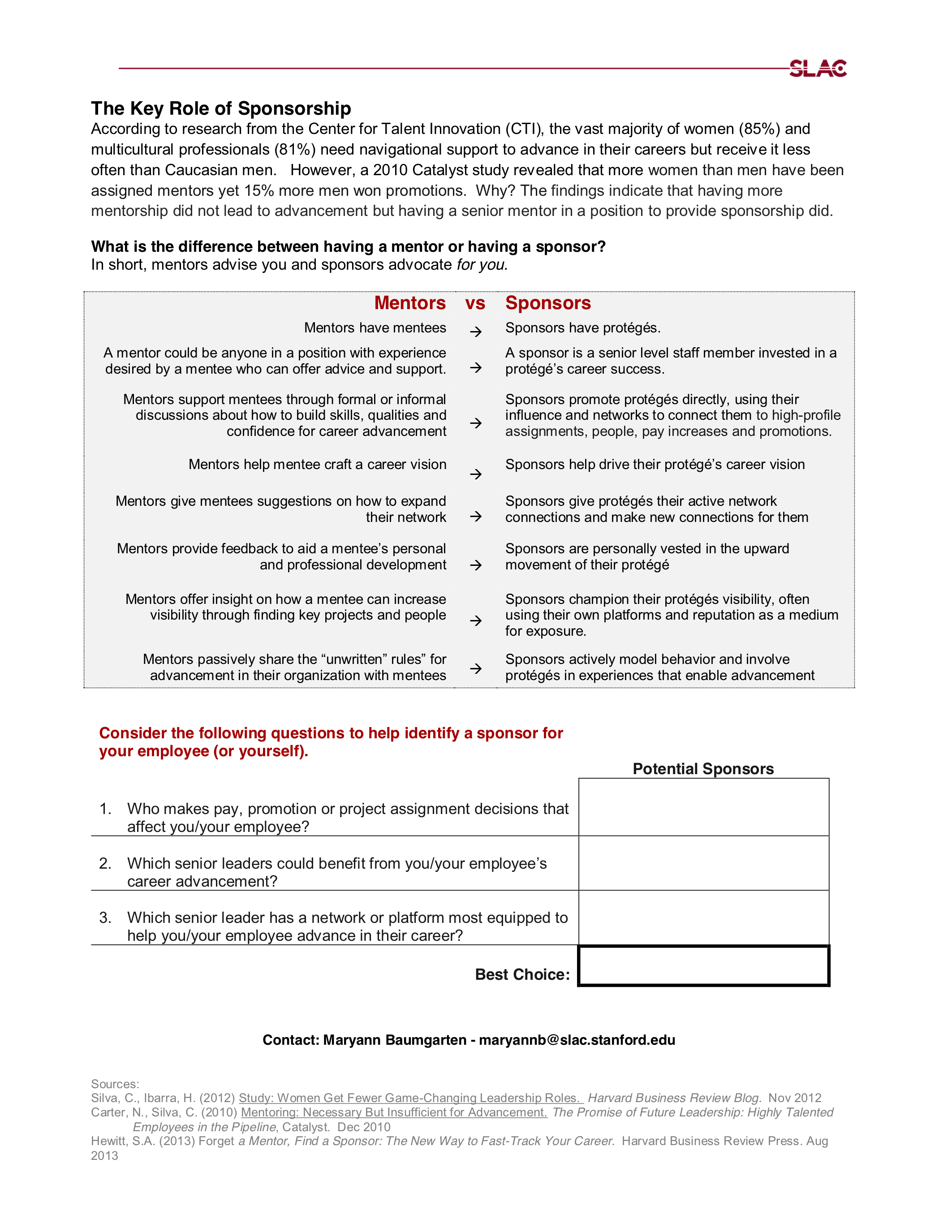Category: mentorship
-

Sponsors vs Mentors The Quick 1 Pager
Here is a quick refresher on the differences between Sponsors and Mentors. 1 page PDF here from Maryann Baumgarten, (previously of Stanford and now at Facebook)
-

link: Developers mentoring developers
https://blog.pragmaticengineer.com/developers-mentoring-other-developers/
-

Proposal – Tech mentorship success / failure – Part 3
(follow up to part 2 of tech mentorship) What does a success mentorship look like? Both mentor and mentee are getting something out of the experience. They meet regularly, or the mentee feels free to reach out when they have issues/questions to work out. They hold themselves accountable to each other, if their are action…
-

Proposal for tech mentorship v2
Continue from Part 1 https://tonytam.org/2019/04/07/proposal-for-technical-mentorship-draft-1/ Target audience : P2, P3, P4 Guidelines for matching : 2 levels separation Why be a mentee ? Ask question of someone who have been where you are at, give you a perspective that you normally don’t see, spend time with you to help you grow technically in a safe…
-

When we are asked to help
Put yourself in the shoes of the other. When was the last time you put yourself out there and you asked for help and was rejected? Regardless of how nice the rejecting was, how did you feel about yourself? Now look at the person asking for help. How much of your ‘precious’ time and energy…
-

The Non-Definitive Guide To Mentoring Software Engineers
(This is the first blog post of Impactful Engineer, make sure to sign up for our monthly interviews with software engineering leaders) You are someone who would like to mentor someone else in their professional career to help them grow their influence and impact. More Comprehensive Reference Material Mentor’s Guide – Anita Borg Institute for…